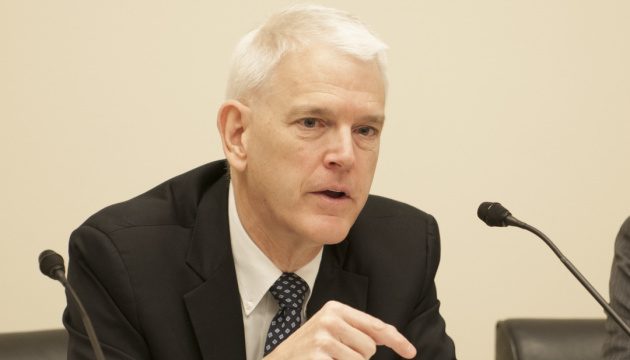
The decision to halt deliveries of military aid to Ukraine, particularly air defense missiles, is badly misguided and signals weakness to American adversaries.
This assessment was provided in a comment to Ukrinform by Steven Pifer, former U.S. Ambassador to Ukraine (1998–2000), currently an affiliate at Stanford’s Center on International Security and Cooperation and a senior fellow at the Brookings Institution.
“The Trump administration’s decision to cut arms shipments to Ukraine is badly misguided,” Pifer said.
This was his response to a request for comment on reports that the U.S. government had suspended shipments of ammunition and missiles to Ukraine. According to U.S. media, the weapons being delayed include dozens of Patriot interceptors that can defend against incoming Russian missiles, thousands of 155 mm high explosive Howitzer munitions, more than 100 Hellfire missiles, more than 250 precision-guided missile systems known as GMLRS and dozens each of Stinger surface-to-air missiles, AIM air-to-air missiles and grenade launchers.
In this context, Pifer emphasized that the White House does not seem to understand that if Moscow prevails in its neo-imperialist war of aggression against Ukraine, “Russia will pose a greater threat to Europe and vital U.S. security interests”.
The former ambassador noted: “The decision also signals weakness to other potential American adversaries.”
As reported by Ukrinform, the White House explained the suspension of military aid to Ukraine as a decision made “to put America’s interests first,” following a U.S. Department of Defense review of U.S. military support to other nations.
At the same time, the Pentagon emphasized it continues to provide President Donald Trump with “robust” options for further military assistance to Ukraine, aimed at bringing the war to an end.
Source: Pause in arms shipments to Ukraine signals U.S. weakness - Pifer



